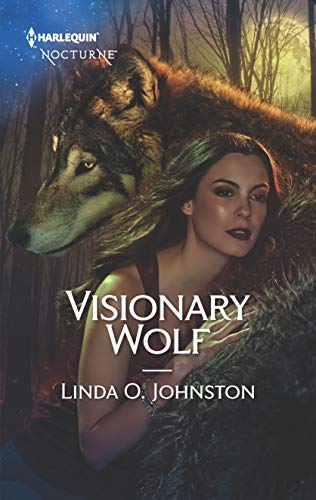Do I Need a Pseudonym to Write Fiction?
February 28, 2019 by The Extra Squeeze in category The Extra Squeeze by The Extra Squeeze Team, Writing tagged as author branding, Pen Names, Pseudonym, The Extra Squeeze Team
Dear Extra Squeeze Team
Do I need a pseudonym to write fiction?

USA Today Bestselling author of 35 books, including the Witness series and the new Finn O’Brien series.
No, you don’t need a pseudonym to write fiction unless you write hard core erotica and you don’t want your mom to know. I used a pseudonym twice in my 30 year career. The first time I was writing for Harlequin and they contractually owned an author’s name. That meant if I wanted to write for anyone else I would have to leave the name–and any consumer base that had accrued to that name–behind. The second time was when I wrote my first legal thriller. The men were big back then–Grisham, Turow–and the publisher wanted readers to assume I was a man. I went by my last name but initials for my first. There was no ‘about the author’ in those books and the whole thing felt very odd. In this day and age when building a brand is your sole responsibility, own your name and build a loyal readership around it.

Developmental editor who has worked for twenty plus years with new and established authors of both fiction and non-fiction, traditional and indie.
Traditionally, publishing under an assumed name was a useful tactic when a writer crossed genres. A non-fiction author whose brand is based on expertise in hunting edible fungi would want to use a pseudonym to publish a steamy romance. A fresh identity to woo a new readership avoids any confusion, possibly even irritation from those readers whose expectations would not be met. A reader who gets a lusty countess when they’re expecting a description of the spotted Nigerian toadstool will not be a repeat reader.
Fiction writers often use pseudonyms to switch between fiction genres. Robert Galbraith jumps (beautifully, I might add) between wizards and detective fiction. Harry Potter fans are diehards so it was wise for J.K. Rowling to present her new detective fiction under a pseudonym. Otherwise fans might have cast a withering spell when their expectations were squashed. Cormoran Strike solving crime was a big step off brand from Harry Potter.
It wasn’t long before the public learned that Galbraith was J.K. Rowling—with a brand that strong anything she writes would be impossible to hide, and why hide it. With her pseudonym public knowledge readers knew what to expect. Rowling’s brand remains intact and Galbraith’s work took off with a new readership. Impossible to say how many of those new readers were enticed simply by the author’s name, but the work stands solidly on it’s own merits now.
Your brand may not be as mighty as Rowling’s but it is as important to your success. No reason not to use a pseudonym to publish your fiction and no reason not to be completely open about it. Supplement the marketing of the fiction by using your existing fan base and marketing tools to launch this new facet of your career. Share the pseudonym on your twitter feed, tout the cover on your pinterest posts, introduce the new personae and the new fiction on your blog. If both your established name and your nom de plume are connected to your brand then fans can seek out whichever genre fits their reading expectations. And your brand is strengthened.

PR/Business Development coach for writers and artists; CEO, Creative Center of America; member, Forbes Coaches Council.
From a branding perspective, maybe you do need a pen name to write fiction. Here are some questions you might ask yourself…if any of your answers are yes, lean toward a pen name.
Ask: Is my own name too difficult to say, spell, or remember? Does my own name confuse readers with other authors or commercial brands? Does the subject matter or the chosen genre of my fiction conflict with the character of the other brands that I am building? Do I have a plan to manage the transparency required to promote a pen name?
If you answered yes to any of the above questions, explore the pen name option with enthusiasm and care. Remember: You are the brand. The books you write are products of the brand. No matter what you do, you must be able to represent your brand and your products with authenticity and with transparency.
I once advised a mystery-writing dentist to use a pen name because his novel was filled with graphic violence and hot sex scenes. His novel directly conflicted with the business brand for his successful dental practice which was built upon his real name. The novel he had written revealed a side of the mild- mannered doctor that the public did not know and frankly might have been shocked to meet. In that instance, using a pen name separated the dentist from the writer so that both could be promoted to proper audiences. A pen name provided some distance between his dental business and his writing business. A plan for transparency was built from the start so that he could be honest and open if patients realized that their beloved doctor was also that wild novelist.
Similarly, you might want to consider a pen name if you are writing fiction in genres that conflict with each other. The motivating idea would be to help the reader know and trust the brand name when they search for your work. The bridge between who you really are and your pen name better be built from the start or it could become problematic unexpectedly with one Did you know social media post.

Cover designer and author of the fantasy series, The Fireblade Array
H.O. is missing again this month. We suspect a long long holiday is to blame.

0 0 Read more
Affiliate Links
A Slice of Orange is an affiliate with some of the booksellers listed on this website, including Barnes & Nobel, Books A Million, iBooks, Kobo, and Smashwords. This means A Slice of Orange may earn a small advertising fee from sales made through the links used on this website. There are reminders of these affiliate links on the pages for individual books.
Search A Slice of Orange
Find a Column
Archives
Featured Books
THE STARMIND ALERT
A psychic thriller that tries to catch an arch terrorist who is like a greased cat.
More info →VISIONARY WOLF (Alpha Force)
Can she love the wolf…
Inside the man?
Newsletter
Contributing Authors
Search A Slice of Orange
Find a Column
Archives
Authors in the Bookstore
- A. E. Decker
- A. J. Scudiere
- A.J. Sidransky
- Abby Collette
- Alanna Lucus
- Albert Marrin
- Alice Duncan
- Alina K. Field
- Alison Green Myers
- Andi Lawrencovna
- Andrew C Raiford
- Angela Pryce
- Aviva Vaughn
- Barbara Ankrum
- Bethlehem Writers Group, LLC
- Carol L. Wright
- Celeste Barclay
- Christina Alexandra
- Christopher D. Ochs
- Claire Davon
- Claire Naden
- Courtnee Turner Hoyle
- Courtney Annicchiarico
- D. Lieber
- Daniel V. Meier Jr.
- Debra Dixon
- Debra H. Goldstein
- Debra Holland
- Dee Ann Palmer
- Denise M. Colby
- Diane Benefiel
- Diane Sismour
- Dianna Sinovic
- DT Krippene
- E.B. Dawson
- Emilie Dallaire
- Emily Brightwell
- Emily PW Murphy
- Fae Rowen
- Faith L. Justice
- Frances Amati
- Geralyn Corcillo
- Glynnis Campbell
- Greg Jolley
- H. O. Charles
- Jaclyn Roché
- Jacqueline Diamond
- Janet Lynn and Will Zeilinger
- Jaya Mehta
- Jeannine Atkins
- Jeff Baird
- Jenna Barwin
- Jenne Kern
- Jennifer D. Bokal
- Jennifer Lyon
- Jerome W. McFadden
- Jill Piscitello
- Jina Bacarr
- Jo A. Hiestand
- Jodi Bogert
- Jolina Petersheim
- Jonathan Maberry
- Joy Allyson
- Judy Duarte
- Justin Murphy
- Justine Davis
- Kat Martin
- Kidd Wadsworth
- Kitty Bucholtz
- Kristy Tate
- Larry Deibert
- Larry Hamilton
- Laura Drake
- Laurie Stevens
- Leslie Knowles
- Li-Ying Lundquist
- Linda Carroll-Bradd
- Linda Lappin
- Linda McLaughlin
- Linda O. Johnston
- Lisa Preston
- Lolo Paige
- Loran Holt
- Lynette M. Burrows
- Lyssa Kay Adams
- Madeline Ash
- Margarita Engle
- Marguerite Quantaine
- Marianne H. Donley
- Mary Castillo
- Maureen Klovers
- Megan Haskell
- Melanie Waterbury
- Melisa Rivero
- Melissa Chambers
- Melodie Winawer
- Meriam Wilhelm
- Mikel J. Wilson
- Mindy Neff
- Monica McCabe
- Nancy Brashear
- Neetu Malik
- Nikki Prince
- Once Upon Anthologies
- Paula Gail Benson
- Penny Reid
- Peter Barbour
- Priscilla Oliveras
- R. H. Kohno
- Rachel Hailey
- Ralph Hieb
- Ramcy Diek
- Ransom Stephens
- Rebecca Forster
- Renae Wrich
- Roxy Matthews
- Ryder Hunte Clancy
- Sally Paradysz
- Sheila Colón-Bagley
- Simone de Muñoz
- Sophie Barnes
- Susan Kaye Quinn
- Susan Lynn Meyer
- Susan Squires
- T. D. Fox
- Tara C. Allred
- Tara Lain
- Tari Lynn Jewett
- Terri Osburn
- Tracy Reed
- Vera Jane Cook
- Vicki Crum
- Writing Something Romantic
Affiliate Links
A Slice of Orange is an affiliate with some of the booksellers listed on this website, including Barnes & Nobel, Books A Million, iBooks, Kobo, and Smashwords. This means A Slice of Orange may earn a small advertising fee from sales made through the links used on this website. There are reminders of these affiliate links on the pages for individual books.







































